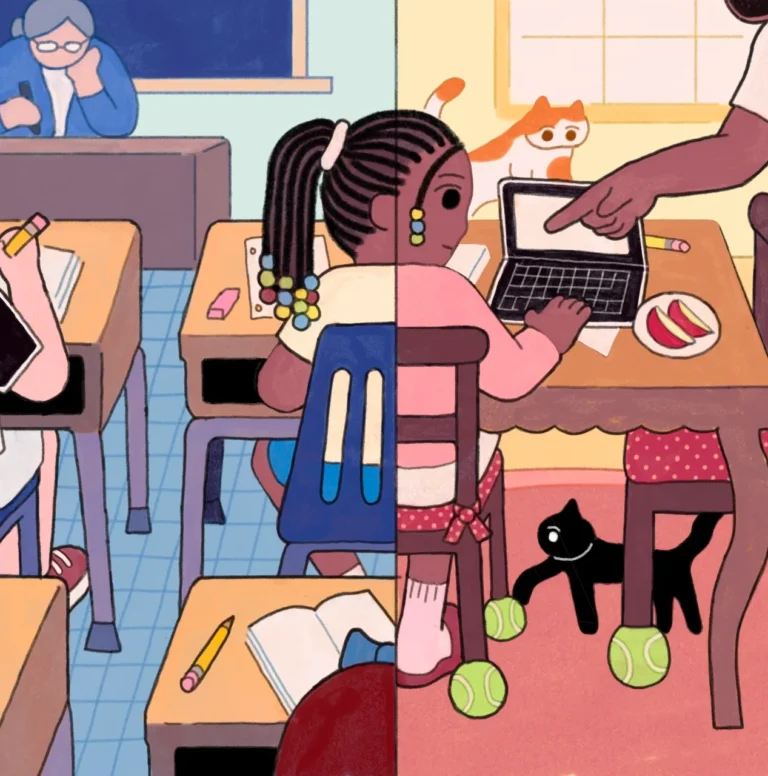Why 2025 Is the Year Paper Bowls and Compostable Soup Cups Redefine Takeaway Packaging
“Why Does My Takeaway Taste Better Now?”
That’s what a café customer in London asked when the store switched from plastic containers to biodegradable paper bowls earlier this year. The food didn’t change — but the packaging did.
And that’s the hidden power of sustainable design: it enhances both experience and ethics. Across the globe, restaurants, caterers, and takeout chains are embracing a new generation of paper food containers that are sturdy, leak-proof, and certified compostable — offering a practical solution to rising consumer and regulatory demands for eco-friendly packaging.
In this post, we’ll explore why compostable packaging is not just an environmental upgrade, but a business necessity — backed by data, real-world performance, and insights from leading manufacturer Bioleader.
The Paper Revolution: Why Businesses Are Saying Goodbye to Plastic
The world produces more than 400 million tons of plastic annually, with only 9% being recycled (UNEP, 2024). The remaining plastic ends up in landfills or oceans — where it can persist for hundreds of years.
In contrast, paper containers with lids have emerged as a renewable, biodegradable, and heat-resistant alternative for takeout and delivery. Made from FSC-certified paper and coated with compostable linings, these containers can safely handle both hot soups and cold salads.
For instance, Bioleader’s range of paper containers with lids has become a staple in eco-conscious food chains worldwide. Each product is optimized for durability, moisture resistance, and brand customization, allowing businesses to maintain aesthetic appeal while reducing plastic waste.
The Rise of Biodegradable Paper Bowls: Performance Meets Sustainability
A decade ago, eco packaging meant compromising on quality. Today, innovation has changed that narrative.
Modern biodegradable paper bowls use dual-layer technology and natural plant fibers to achieve both insulation and strength. These bowls withstand boiling soup temperatures, heavy sauces, and even freezer storage without leakage.
According to a 2025 Food Packaging Research Report, switching to biodegradable alternatives can:
- Reduce landfill waste by over 80%.
- Cut CO₂ emissions by 40–60% compared to plastic.
- Increase customer satisfaction scores by 25% in eco-focused markets.
A case study from Bioleader’s European clients revealed that after adopting biodegradable paper bowls for takeaway meals, customer return rates increased by 17%, showing a clear link between sustainability and brand loyalty.
Takeaway Packaging Under Pressure: Regulations Are Driving Change
The EU Packaging and Packaging Waste Regulation (PPWR) coming into full effect in 2026, along with the U.S. Extended Producer Responsibility (EPR) initiatives, is forcing restaurants and retailers to rethink disposable packaging.
Businesses that act early — especially those sourcing certified compostable solutions — are gaining competitive advantages in both compliance and public perception.
One top-performing solution comes from Bioleader’s takeaway soup containers. Designed for food delivery, these containers combine oil resistance, leak protection, and stackable design — ensuring smooth logistics for both local and international buyers.
As cities like Toronto, Paris, and Seoul tighten restrictions on single-use plastics, the global shift toward fiber-based and compostable packaging has become not just a trend, but a legal and operational necessity.
Compostable Soup Cups: The Scientific Edge
Compostable soup cups represent the next generation of sustainable packaging — certified under BPI, EN13432, and OK Compost standards.
What sets them apart is material science. These cups are made from plant-derived fibers and biodegradable coatings that break down within 90–180 days under industrial composting conditions.
Key Performance Data:
| Feature | Traditional Plastic | Compostable Paper | Difference |
| Decomposition Time | 400 years | 3–6 months | 99.9% faster |
| Heat Resistance | 60°C | 100°C | +40°C |
| CO₂ Emissions (Lifecycle) | 3.8 kg/unit | 1.2 kg/unit | –68% |
| Consumer Preference | 34% | 81% | +47% |
This balance of performance and environmental integrity has made compostable soup cups the gold standard for 2025’s takeaway packaging solutions.
read more : How global receiving accounts help Pakistani SMEs expand globally
What Buyers Should Know Before Choosing Kraft Paper Bowls
Choosing the right supplier is crucial in the evolving food packaging market. Many buyers underestimate the complexity of certifications, moisture-proof coatings, and export logistics — which can directly affect profitability and compliance.
Bioleader’s 2025 Kraft Paper Bowl Manufacturer Buying Guide outlines 30 critical questions that every distributor or food brand should ask before ordering, such as:
- Does the product carry compostable certification (EN13432/ASTM D6400)?
- Is the lining PFAS-free and microwave-safe?
- What is the MOQ and lead time for OEM orders?
- Can the factory provide SGS and FDA food-contact reports?
This data-driven approach helps businesses make informed sourcing decisions — avoiding hidden costs and ensuring long-term compliance.
Case Study: Bioleader’s Global Impact
Bioleader, headquartered in Xiamen, China, has become a recognized leader in biodegradable food packaging manufacturing. The company integrates advanced pulp molding technology with strict quality standards to deliver eco-friendly tableware for restaurants, retailers, and distributors worldwide.
What Sets Bioleader Apart:
- Material Innovation: Bagasse, PLA, CPLA, and kraft paper products.
- Global Certifications: EN13432, ASTM D6400, OK Compost, BPI, and PFAS-free testing.
- OEM/ODM Expertise: Custom printing, logo embossing, and color matching.
- Scalable Production: Exporting to 60+ countries with efficient containerized logistics.
- Sustainability Leadership: Commitment to carbon-neutral production by 2030.
Bioleader’s consistent investment in R&D and product diversification has positioned it among the most trusted global suppliers in the biodegradable packaging sector.
Data Insight: Why Switching Makes Business Sense
| Metric | Plastic Containers | Compostable Paper Containers | Result |
| Waste Disposal Cost | High | 25–40% lower | Cost saving |
| Regulatory Compliance | Declining | Fully compliant | Future-proof |
| Brand Reputation | Neutral | Eco-positive | +28% NPS |
| Customer Retention | Moderate | High | +17% loyalty gain |
With climate policies tightening globally, sustainability is no longer a moral decision — it’s a business strategy that drives measurable ROI.
FAQ
1. Are biodegradable paper bowls suitable for both hot and cold foods?
Yes. They are tested for temperature stability up to 100°C and suitable for both soups and salads.
2. What certifications ensure compostability?
Look for BPI, EN13432, ASTM D6400, and OK Compost — all available for Bioleader’s product range.
3. Can compostable cups be microwaved or refrigerated?
Yes. Bioleader’s paper and bagasse containers are safe for both heating and freezing applications.
4. Are kraft paper bowls oil- and leak-resistant?
Absolutely. Their interior PLA coating ensures full liquid barrier protection without PFAS chemicals.
5. Can I order custom-printed eco bowls?
Yes. Bioleader provides OEM printing and branding solutions for global foodservice clients.
Conclusion: The Future of Takeaway Packaging Is Circular
The global transition from plastic to paper-based and compostable materials marks a pivotal shift in how we dine, deliver, and dispose.
By integrating advanced materials with design excellence, companies like Bioleader are not only solving environmental challenges but also reshaping how the world experiences takeaway dining.
For brands aiming to stay ahead of 2025’s sustainability curve, the path is clear: choose verified, compostable, and high-performance packaging — because the future of foodservice is circular, compostable, and customer-approved.






